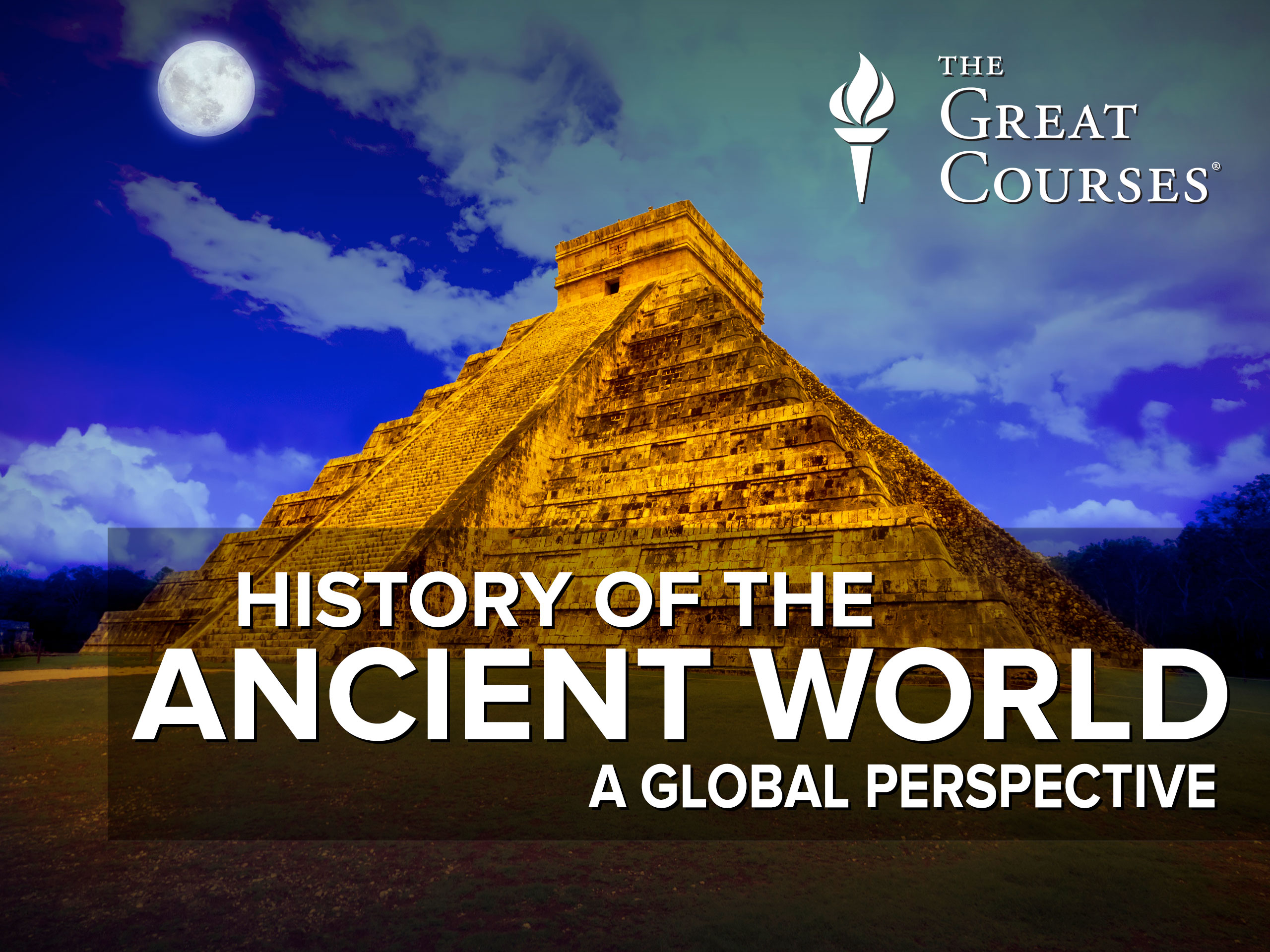Latest videos
Although the three centuries following Alexander were years of warfare, absolutism, and political stalemate, the Hellenistic era did leave a legacy of cultural richness and originality. See how achievements in philosophy, science, and art belied the suffering and mass enslavement of this time.
Consider what it must have been like to be among the very first historians, not only practicing your art, but having to define it and its standards, as well. See how fundamental questions about writing history were answered by Herodotus, Thucydides, and Sima Qian.
Discover how the father of the Chinese nation combined ruthlessness and vision to unify his country, create the largest empire that part of the world had known, and execute a clear and coherent philosophy that would be China's political model for almost a millennium.
Alexander's death in 323 B.C caused his vast empire to fragment. You meet the father and son who created the largest Indian empire that would be seen until the establishment of the modern Indian nation in 1947.
With the successful invasion of the western Persian Empire, Philip's son successfully carried out his father's plan. Alexander the Great would then create his own path, and you follow him along the route of the greatest sustained conquest the world had yet seen.
Begin a four-lecture exploration of what has come to be known the Great Man Theory of History—that a single person could indeed alter the course of history—by reviewing the careers of five rulers who might well provide the best arguments for the theory.
Learn how the end of Greek unity brought down the astonishing political and cultural successes of the early 5th century, culminating in one of the most shameful episodes in Greek history: the trial and execution of one of its greatest thinkers, Socrates.
Continue your examination of Greece's cultural heritage with this look at Greek theater—especially its greatest playwrights of tragedy, Aeschylus, Sophocles, and Euripides—and the second wave of philosophers known as the Sophists, led first by Socrates and then by his disciple Plato.
Pause in your study of historical events to appreciate two of classical Greece's most important contributions to art and architecture. Learn the distinguishing characteristics of Greek sculpture and the principles that gave such extraordinary beauty to Greece's temples.
Discover the reasons the Greek city-states were able to emerge intact from their conflict with a vastly superior Persian Empire. Learn, too, how the defensive alignment put in place to protect those states—begun as an alliance of equals—instead became an Athenian empire.
Your attention shifts to those thinkers who looked beyond the physical world for answers to their questions about the fundamental issues of existence. Examine the impact of several key texts and belief systems, including the Upanishads, Jainism, Buddhism, Daoism, and Zoroastrianism.
From 700 to 500 B.C., thinkers around the world began to turn to fundamental philosophical questions. This lecture focuses on those whose concerns addressed this world and its pragmatic issues through rational inquiry, including Confucius, the Legalists, and the Greek philosophers known as the Ionian Rationalists.
Witness the early development of a unique culture that viewed itself as constituting the entirety of the world and thus the site of all cultural advancement, with the latter self-image largely maintained even after China gained an awareness of the world beyond its borders.
Experience what it was like to be raised a Spartan man or woman, the changes in military tactics and equipment that made their armies so feared, and the tragic flaw that guaranteed that this Greek city-state's power, no matter how widespread or intimidating, could not endure.
Greece's most famous city-state is often praised for its creation of democracy. You examine the origins of that system and discover some surprising revelations, including the seminal role played by an instance of spurned affection and perhaps the earliest example of stuffing a ballot box.
Discover how a work or body of literature can become the core of an entire culture in this examination of the influence of Homer on the Greeks and of the centrality of the Vedas and Epics in the civilizations of ancient India.
Turn to the Minoan and Mycenaean civilizations of the Mediterranean. Learn about the historical underpinnings of the Minotaur myth, Plato's account of what might have been the basis for the legend of Atlantis, and the rediscovery of writing as Greece emerged from its own Dark Ages.
In an ironic reversal of the Indus legacy, the next great era of Indian history is known through an enormous bounty of texts, but relatively little archaeological or material evidence. Grasp what the thousands of verses we have tell us about Vedic culture and religion.
Your exploration of a once-lost civilization introduces a key theme of the course—the enormous problems faced by modern historians and archaeologists in interpreting an ancient civilization through physical evidence alone, with no written documents to bring that evidence to life.
Discover how Egyptian views of death and tombs changed with the kingdom's occupation by—and eventual expulsion of—the Hyksos, including an examination of how the stark differences between the Egyptian and Mesopotamian environments may have influenced their visions of the afterlife.

